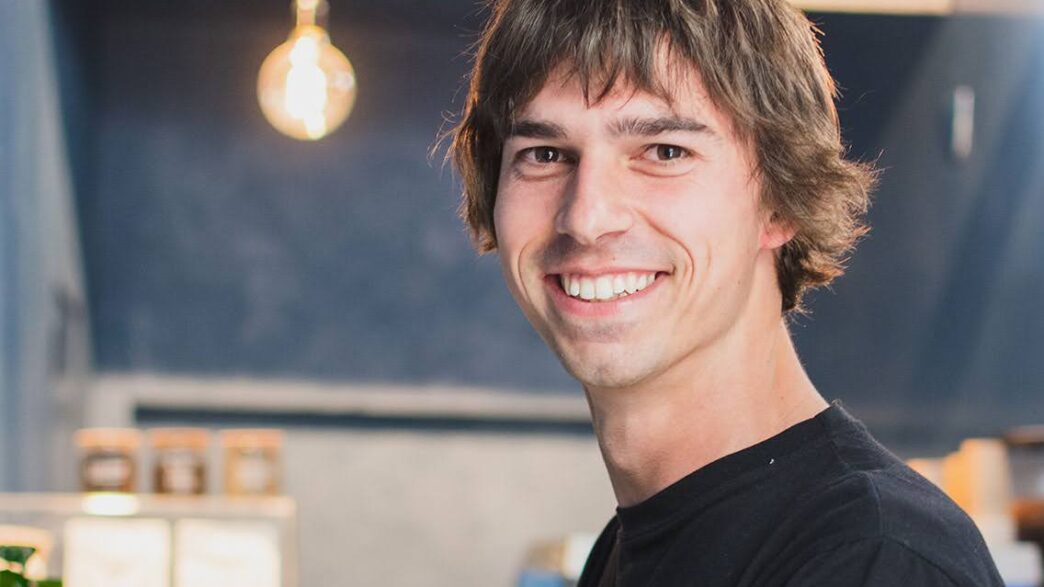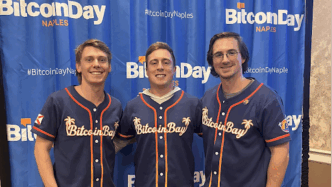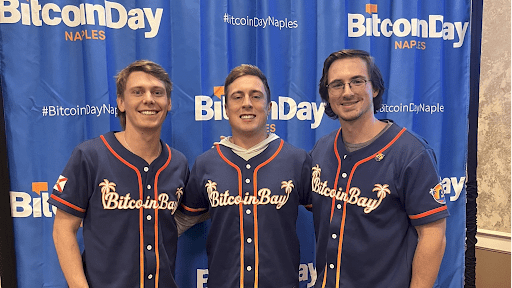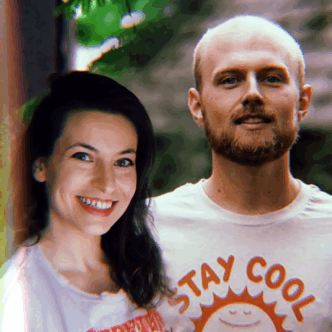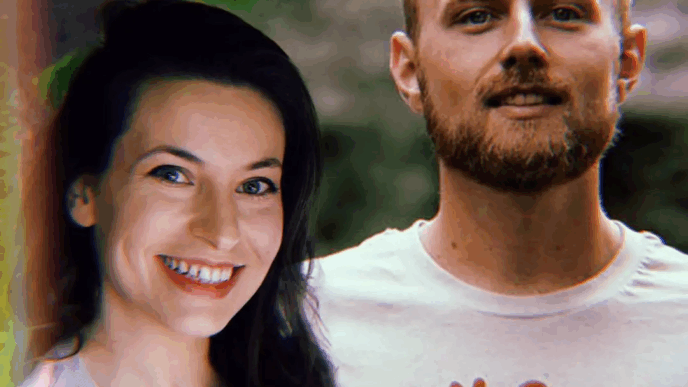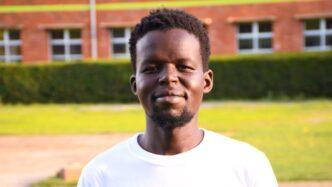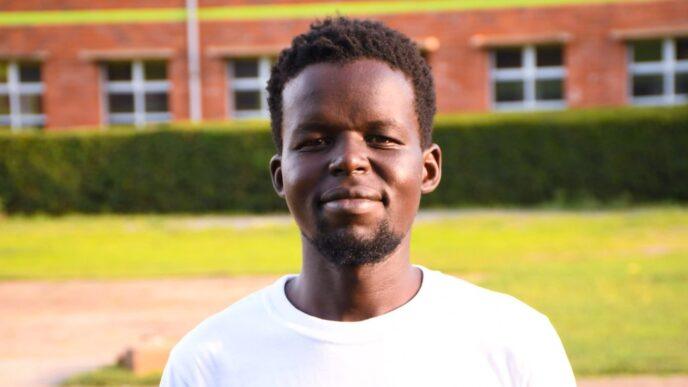In a world drowning in endless financial noise—hyperinflation, surveillance banking, and fragile trust—Ruben Waterman saw a lifeline: bitcoin. Not as a speculative gamble, but as a quiet rebellion. A way to save, to breathe, and to reclaim control.
In 2018, while still a student, Ruben turned a university project into a radical idea: Bittr, a bitcoin-only platform where you hold the keys, you own your future, and the only middleman is the code itself. No frills. No custodians. No compromises. Just a modern-day piggy bank for sound money, designed to let anyone—from tech novices to seasoned stackers—swap fiat for bitcoin as effortlessly as sending a text.
But Bittr isn’t just an app. It’s a manifesto. A refusal to bend to invasive regulations, a stand against the myth that self-custody is “too hard,” and a bet that financial sovereignty will one day be as normal as breathing.
Intro
- Introduce and tell us more about yourself
Hi, I’m Ruben, a bitcoiner who founded Bittr in 2018. I started Bittr as a uni project. It’s a simple concept: You send fiat money to us and we send bitcoin into your Wallet. My mission is to make it easy for anyone to save in bitcoin without giving up privacy or control.
I believe in bitcoin as a tool for financial freedom and sovereignty. Bittr is bitcoin-only, fully non-custodial at any point, and built for people who just want to stack sats.
- If you could have dinner with three people (living or dead) to discuss bitcoin, who would they be and why?
Hal Finney: I’d love to talk with him about where bitcoin stands today and whether it aligns with what he envisioned 15 years ago. It would be fascinating to hear if, in his view, the community made any major mistakes or if he would’ve done things differently.
Bernard Parah: I’d like to discuss the similarities and differences between our users in Switzerland and Bitnob’s users in Nigeria, especially how they use bitcoin in their daily lives. It would be great to exchange thoughts on how we can both help accelerate adoption in our respective regions.
Ayn Rand: I’ve read and loved all of Ayn Rand’s books. Considering how ahead of her time she was, I’d be curious to hear what she thinks of bitcoin as a form of freedom money. Something she, unfortunately, never got to experience.
As someone who was skeptical of almost everything, I also think she’d be the perfect person to challenge bitcoin and point out its flaws (if she were still around).
Building in Bitcoin
- Bittr’s tagline is “Your future, your Bitcoin Piggy Bank.” What inspired the concept of a bitcoin “piggy bank,” and how does it reflect Bittr’s mission?
The idea of the bitcoin piggy bank came from the way of seeing bitcoin simply as a savings method. I always saw bitcoin as a long-term savings technology, not something to stress over weekly price movements. It’s about saving, not trading.
In the end bitcoin will win as a better form of Money. With Bittr, I wanted to make it easy to just put a little money aside regularly. It’s about building the habit of saving in sound money. Dollar-Cost-Averaging is the way! We also don’t offer an option to sell, which we see as a feature and not a bug.
- Bittr has been supporting self-custody since 2018—long before it became mainstream. What convinced you early on that self-custody was the future of bitcoin ownership?
Self-custody was always the whole point. Bitcoin’s core promise is that you don’t need to trust anyone to hold your money. I wanted Bittr to reflect that. I didn’t want to hold users’ funds, touch their keys, or know their identities. The moment you give up custody, you’re back in a system of trust, and that’s exactly what bitcoin was designed to fix.
Bittr simply doesn’t work any other way. We’ve never offered custodial wallets, and we don’t intend to. It contradicts what bitcoin stands for. We’d rather help you take control of your own keys than keep your bitcoin for you.
- What was the biggest challenge in creating a platform that lets users buy bitcoin directly into their own wallets without intermediaries?
The biggest challenge, as so often in this space, has been regulation. In the EU, it’s already impossible to run a service like Bittr without forcing users through invasive KYC checks and storing sensitive data.
I originally started Bittr in the Netherlands, but in 2020 I had to shut it down rather than compromise the values it was built on. Today, Bittr operates from Switzerland, where I can build things the right way.
- How does Bittr ensure a seamless and secure experience for users who may be new to self-custody?
Very often, newcomers are sent to big exchanges because they seem easier. We want to change that by making self-custody straightforward, even for beginners. The initial setup is a one-time process where users sign a message from their Bitcoin wallet to verify ownership.
Today, most wallets have a user-friendly process for this, that only takes a few seconds. Once that’s done, the user receives a personal payment reference. From there on, buying bitcoin is as easy as sending a bank transfer with that reference – every time they do, they automatically receive the equivalent amount in bitcoin directly into their own wallet.
- Were there any pivotal moments in Bittr’s journey where you thought, “This is going to change everything”?
I saw how many people started using Bittr not just for themselves, but also to help their kids, parents, or friends start saving in bitcoin. That was when I realized Bittr wasn’t just a project for my Uni. It was becoming a tool for savings that actually was useful for people. I realised that I’ve built a bitcoin purchase option for beginners that doesn’t neglect self custody.
- Why do you think many people still hesitate to self-custody their bitcoin, and how is Bittr changing that mindset?
I think a lot of people still hesitate to self-custody because they’ve been told it’s risky. There’s a fear of messing something up and losing their bitcoin forever. And let’s be honest: This can actually happen if you’re not knowing what you’re doing. We try to flip the narrative with education. We make self-custody the default, but without overwhelming users.
- What’s the most common misconception about self-custody that you’d like to debunk?
The most common misconception is that self-custody is risky. But I’d argue the opposite: trusting an exchange or custodial service is actually far more dangerous. Just look at Mt. Gox, QuadrigaCX, FTX… With self-custody, yes, you need to take responsibility.
Stamping your seed phrase into metal and storing it safely is a one-time effort that gives you full ownership. That’s a much better trade-off than relying on a third party. Bitcoin was built so you don’t have to trust anyone and therefore you need to do self custody.
- What’s the most interesting customer story you’ve encountered at Bittr?
One day, a friend reached out if I’d be able to help a friend of theirs with their bitcoin and crypto stuff as they believed they had messed up. This was a gentleman of age and was fond of investing and trading stocks but didn’t know too much about digital currencies.
After sitting with him for a few hours and explaining what he’d done (wrong) and why he bought all of the wrong crypto, he sold it all for bitcoin. Ditched his trading accounts on Coinbase and Kraken and just started dollar-cost-averaging bitcoin with bittr.
Even though he did lose some of his crypto, he was thankful for the lessons learned and never looked back. Through this interaction, we’ve actually became friends and still hang out to this day.
- What’s one piece of advice you’d give to someone who’s just starting their bitcoin journey today?
Don’t get too emotional – whether it’s hype or panic. That rollercoaster feeling is totally normal in the beginning, but it’s also something you need to learn to ignore. Zoom out and focus on the bigger picture.
Bitcoin has delivered an average yearly return of 60%. But to be in profit, historically, you had to hold bitcoin for at least 4 to 5 years. So don’t overthink it. Start small, take custody of your coins, and give it time.
What’s Next?
- Where do you see bitcoin’s role in the global financial system in 5-10 years, and how does Bittr fit into that vision?
In 5 to 10 years, I believe bitcoin will play a much bigger role in people’s personal lives. Not because governments or banks approve it, but because more and more people will choose to opt out of systems that are clearly failing them.
Bitcoin offers something fiat never can: absolute scarcity, neutrality, and independence from centralized control. I see it becoming the go-to savings technology worldwide.
The only thing that could slow that down is if central banks suddenly stopped printing money and made fiat currencies stable again. But let’s be honest, that’s not likely to happen.
With Bittr, I want to make it easy for anyone to start saving in bitcoin. We’re not trying to build some complicated financial product. We’re simply offering a direct swap from your bank account to your own bitcoin wallet – exchange bad money for good money.
- How can the global bitcoin community contribute to your mission?
Help others take that step into self-custody. Show them how to set up a wallet. Explain what a seed phrase is. Walk them through it. That kind of education, pleb to pleb, is what’s drives adoption. Onboarding someone to self-custody is one of the most powerful things you can do to fight fiat.
- Thank you for sharing your insights! Any final words for the Bittr community and bitcoiners worldwide?
Thanks to everyone who supported me on this journey. I know it hasn’t always been easy. So thank you for staying true and sticking with me. The bitcoin community is something I’ve never seen before, and I’m genuinely grateful to be part of it.


